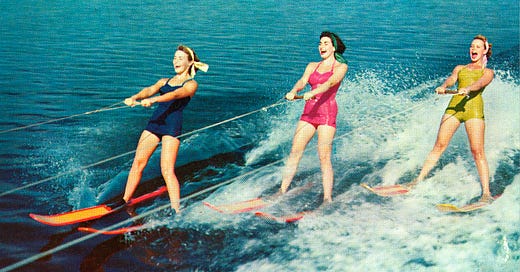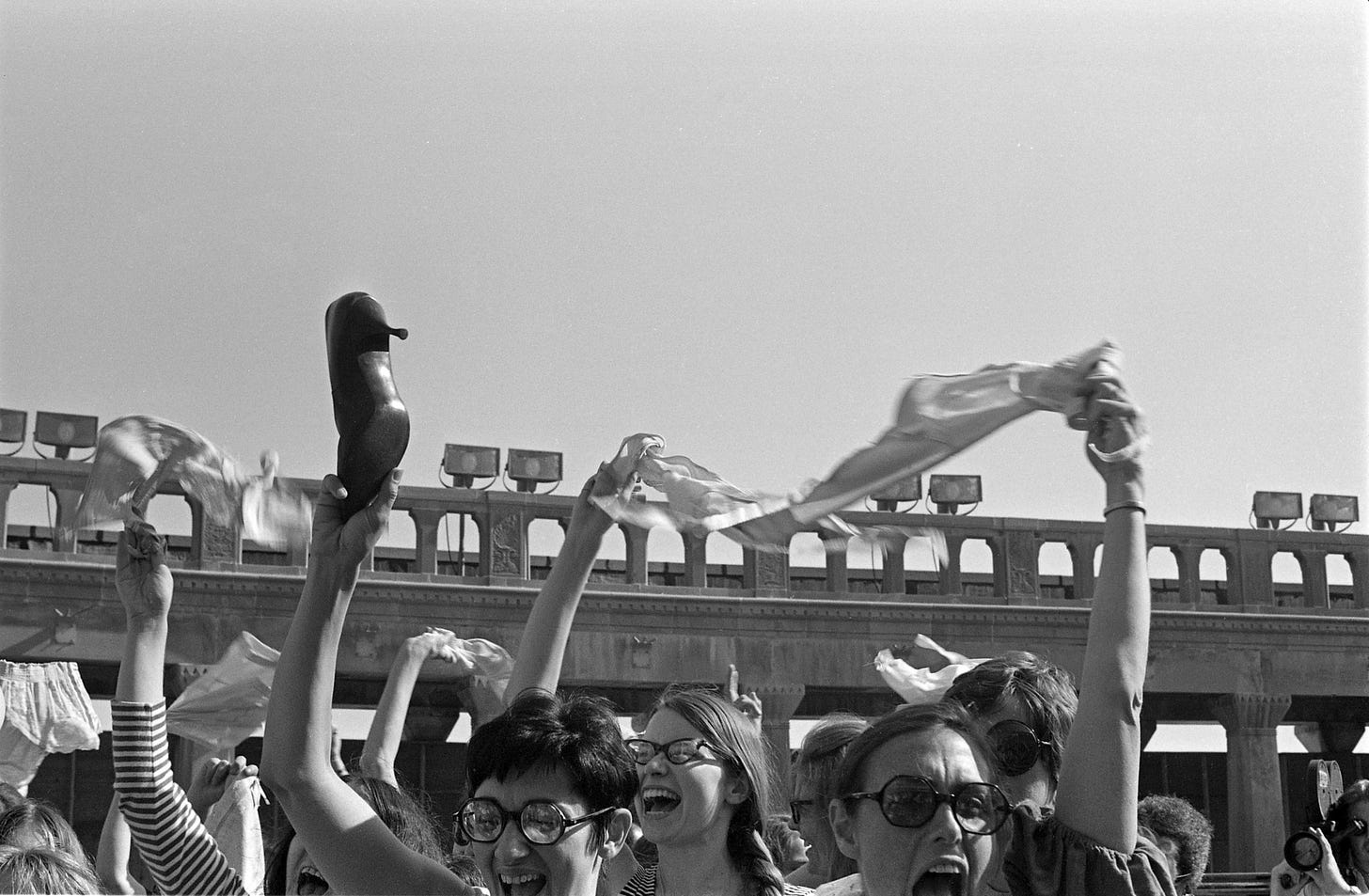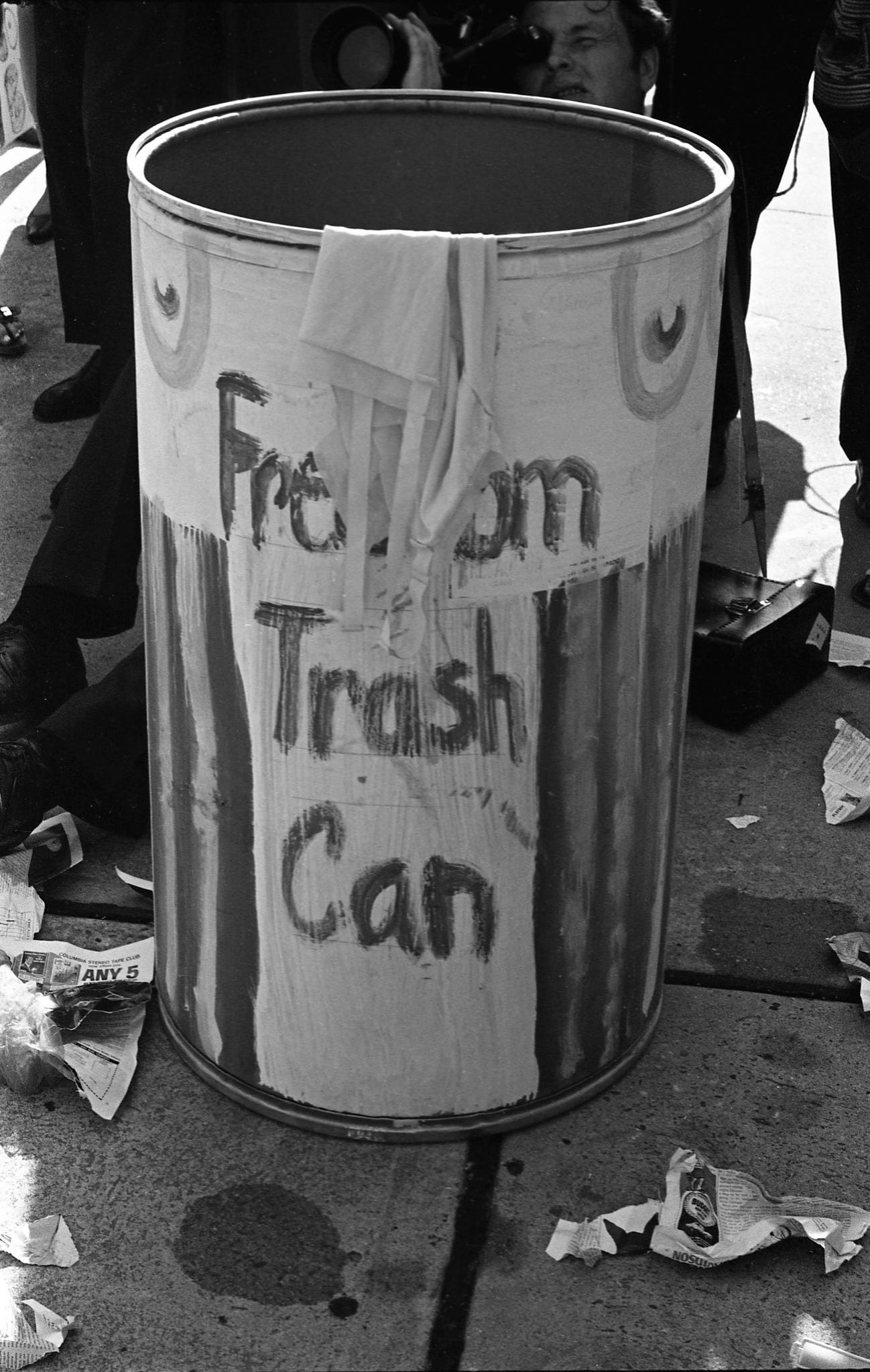You’re a free subscriber to Wait, Really?. For the full experience, become a paying subscriber.
People often ask how my articles come to be, and sometimes they honest to god happen like this:
Editor, during a meeting this summer: What’s on everybody’s minds?
Me (irritated, bored, depressed): Ugh, I hate everything. What happened to fun????
Editor: That’s not a bad idea — a reporter’s search of fun. Assigned!
Me: 😳
Now let’s just say that is a hazy recollection of that meeting, and that this is very much not the way that story assignments typically go. But here I was, with very little else on my plate, feeling generally stagnated and blasé, when suddenly I’d been tasked with a story I'd never intended to pitch.
So what did happen to fun?
To be fair, it was something I’d been thinking about. Because, even before the pandemic, it seemed like everything had gotten so serious. People were afraid to joke at work, lest they be deemed insensitive. Everybody was sober or dieting or eating “clean”; nobody wanted to have a martini at lunch; they were too busy doing yoga or obsessing about self-care or drinking green juice or turmeric lattes and “optimizing” every last aspect of their life — including rest.
And then the pandemic happened, which made it all worse. Now we were stuck at home; there wasn’t even anything to gossip about; we had gone from not drinking anything to drinking too much; we were sick of our partners or tired of being alone, death was all around us, and there was only so long we could occupy ourselves by baking bread.
Even if we did have moments of joy, or lightness, and even after the vaccine came, it felt almost distasteful to even attempt to enjoy ourselves. How could anyone have fun with suffering all around?
“Fun” is a concept that all of us know, but few can really define — even scientists who study it. It’s something that most of us experience — and we probably experience it the most when we aren’t thinking about it — but that can become elusive with age, stress, children, work, the list goes on. Fun is not happiness, though scientists say it is connected to it. It’s not pleasure, which you can study in the brain and stimulate on command. And while you can attempt to create situations that are fun — games, sports, social events — fun is fundamentally a feeling, not an activity.
It’s also a thing that, in our 24/7 world, where other people’s problems are all around us, and everybody seems to be hustling and working all the time, can be perceived as frivolous. With all we have to to do, and all that’s going on in the world, and all the more efficient ways we could be spending our time, who has time for fun?
And yet, as I soon learned, fun is actually more important than ever.
In her book, The Power of Fun — which, if you’re looking for practical ways to increase the fun in your life, written in an accessible way, I highly recommend! — the science journalist Catherine Price notes that when people are having real, "true fun" they report feeling focused and present, free from anxiety, self-criticism and perfectionism. “They laugh and feel connected, both to other people and to themselves,” Price told me when I called her up, desperate for a “funtervention.” (She offers them on her website.)
Price, who spent the last few years delving into the research on fun, and interviewing hundreds of subjects about it, never considered herself somebody who cared much about the subject, but she has turned into something of an evangelist. “I’m really like, ‘Oh my god, is fun the answer?’” she said, laughing.
Price recommended I make a list of things I remember as being the most fun throughout my life — and then try to find commonalities between them. Did they involve the outdoors? Physical motion? A sense of danger? Laughter? How often were other people involved?
She calls these “fun magnets” — and she believes that once you identify them, you can actually create situations in which you might be able to have more fun.
My magnets included things that felt slightly transgressive — say, riding on the back of a motorcycle; or going to a gun-range — and always involved other people, whether strangers or friends. I had a tendency toward “ambitious fun” — meaning, I liked to achieve something at the end (yes, I’m a Virgo) and often my fun involved spontaneity (in other words, you can’t really plan for my kind of fun).
My article on fun came out last week (you can read it here), but this weekend — a holiday, the longest one of the summer, which also happens to fall on my birthday — I am making a point of trying to have fun.
Today: I'm going with a pal to get matching tattoos. Tonight: “Sleep No More,” a retelling of Macbeth set in a faux abandoned insane asylum.
How are you having fun?
What I’m Reading:
Everyone wants to be an influencer: “Influencer” is now one of the most desired career paths for both children and adults. Barf.
This U? Meet the social media editor behind the newly-sassy White House Twitter account.
Working K-9 to 5 🤣 🤣 : Dolly Parton launches a dog apparel line, Doggy Parton.
Always the G.O.A.T.!!! Serena Williams lost at the U.S. Open on Friday, marking her retirement from tennis. There are many articles about this, but this tweet made me LOL.
RIP Barbara Ehrenreich: The journalist, activist and author, has died at 81. Read her obituary.
The kids are alright? A high school senior asked 61 colleges if they’d pay for students to travel for an abortion. Only 5 said they might.
From the Archives, Bra-burning Edition:
Fifty four years ago, on Labor Way weekend in 1968, the swimsuit-wearing beauties of the Miss America pageant (above) were confronted with a spectacle on the Atlantic City Boardwalk (below): 100 feminists throwing bras, girdles, curling irons, false eyelashes, high heels and other “instruments of female torture” into a trash can labeled “Freedom."
The protest was an effort to challenge the beauty standards of the day, at a time when three in four American households tuned into the event. But — fun feminist fact — it is also where the term "bra-burning" originated. The women did not, in fact, burn any bras.
They had indeed planned to burn bras, but couldn't get the right permit — so, alas! The "Freedom Trash Can" had to do. But that didn't prevent the New York Post from printing a story claiming they did, and thus, an insult was born.
Have a ~fun~ weekend!
(All images via Getty Images)
⏩ Forward this newsletter to a friend or sign up to get it to your inbox.
💬 Have thoughts to share? Email me at supwaitreally@gmail.com. (You can also just reply to this email.)
🙋🏻♀️ Follow me on Instagram or learn more about my writing and books here.








